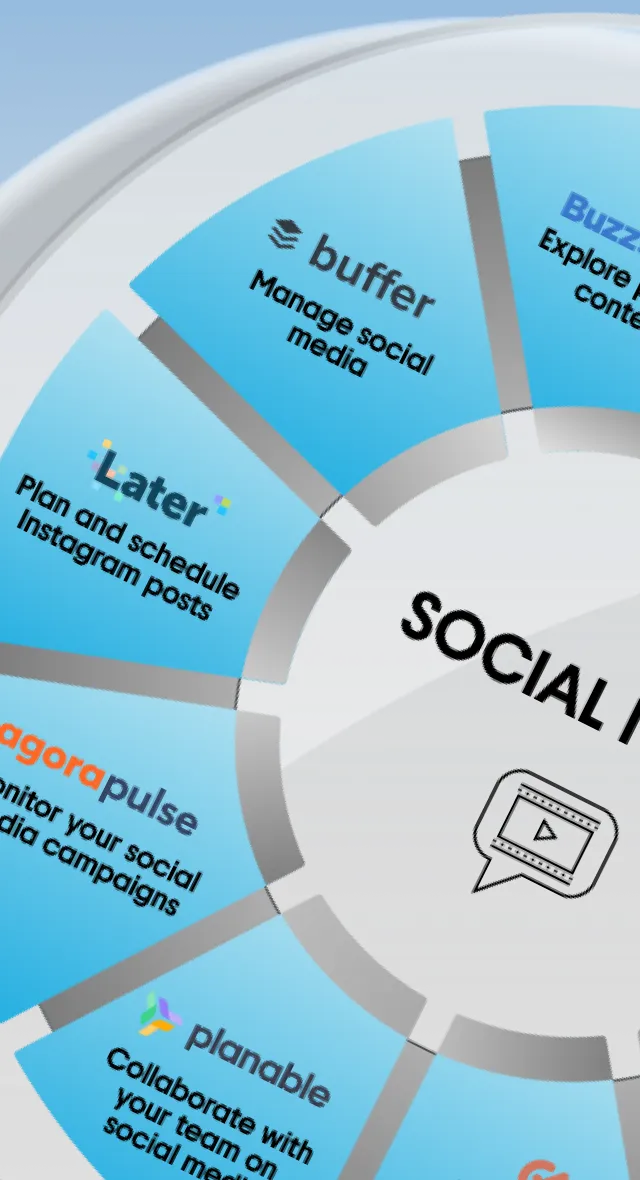Productivity Trap: How to Stop Trying to Get Everything Done
How often do you feel so exhausted from work, that it seems like you’ve used all of your internal resources on it? Do you sometimes find yourself thinking that your life is a never-ending marathon of deadlines? If you’re constantly doing your utmost, but it seems like you’re not getting anything done, it’s likely that you’re in a productivity trap.
The problem with constantly improving efficiency is that instead of more free time for yourself and a better work-life balance, you get only additional workload and stress. In this article, we’ll explore the problem of being in a productivity trap and find out how to escape it.

What is a productivity trap?
A productivity trap can be described with a simple example—when you do your job efficiently, you get some free time. But instead of having some rest, you do what? That’s right, you find some new tasks for yourself. As a result, your workload only increases, unlike the energy needed to perform it. More work only results in stress and heightened anxiety levels. This is because you’re left feeling like you won’t be able to get everything done.
The Guardian writer, TED speaker, and author of the bestseller “Four Thousand Weeks: Time Management for Mortals” Oliver Burkeman believes that the productivity trap originated with the rise of the industrial revolution. Before it, people lived by following the natural rhythm of life. But the appearance of plants, factories, and a fixed working day brought up the question of effective resource and time management. In other words, how to do as much work as possible in as little time as possible.

The development of digital technology designed to simplify human life has taken preoccupation with optimization to a new level. Modern society is obsessed with productivity. This is reflected in hustle culture, which puts extreme workaholism on a pedestal. For a long time, the idea that hard and often overtime work is the key to success was very popular, and companies by all means were encouraging their employees to do their best to achieve better results. But later it became clear that in the long run, this approach affects the mental health of employees and worsens the overall atmosphere at work, which cannot possibly improve a company’s productivity.
“A person on a treadmill has to keep moving to stay in the same place. The same logic works for a productivity trap.”
Another productivity trap explanation is the concept of hedonic adaptation or the hedonic treadmill. The point of this trend is that people maintain a relatively stable level of happiness and quickly return to it after strong negative or positive changes in their lives. This means that if, for example, you receive a salary increase, the joy it brought you will not last very long. However, your expectations and desires will increase along with the raise, which means you won’t feel happier. No matter how much you have achieved, you’ll always want more. This can be illustrated with a simple metaphor: a person on a treadmill has to keep moving to stay in the same place. The same logic works for the productivity trap; after having reached a new level of efficiency, you take on additional work, rather than a rest.

What are the consequences of the pursuit of maximum productivity?
Hustle culture has given rise to the concept of toxic productivity, which is an unhealthy desire to be efficient at any cost. Its main idea can be described as follows: to become successful, work harder than others. But in fact, instead of desired success, toxic productivity usually brings a deterioration of health and overall well-being. The main problems it can cause include:
- Anxiety. The heavy workload a person takes on makes them worry about not being able to cope with it. The desire to do their best drives them into a cycle of chronic anxiety and fear.
- The feeling of guilt. Since hustle culture promotes workaholism as the main philosophy of life, the desire to take an extra day off or vacation can cause feelings of guilt, as if it were a demonstration of laziness or a waste of precious time. This is when imposter syndrome activates.
- Apathy. People have rather limited reserves of time and energy. By constantly working at the limit of their capabilities, they run the risk of simply exhausting their resources. This can be followed by apathy, when everything seems to be wholly void of any sense.
- Diseases. Intense work without proper rest leads to health problems. Lack of sleep, stress, and constant overwork increase the risk of diseases (including cardiovascular disease), physical and emotional exhaustion, and burnout.
- Neglecting one’s own life. The desire to be as productive as possible creates an unhealthy work-life balance. Sacrificing the latter will affect your relationships with family and friends, as well as other important areas including the ability to pursue your favorite hobbies or sports.

How to avoid a productivity trap or escape it
Of course, we all want to be successful in our profession; in today’s world, it is the main social currency, whether we like it or not. But let’s go back to Oliver Berkman and his bestseller. Four thousand weeks (or 80 years) is the average human life expectancy. For a moment, consider that 80 is all we have. In our desire to get everything done, we often forget about the truly important things. So, let’s try to break the vicious circle of productivity using some simple tips.
1. Set realistic goals.
Just accept the fact that managing to get everything done is an unreachable goal. But the main thing is to realize that no one really expects you to exceed human capabilities. Try to critically evaluate your resources and take on a manageable workload. Quite often, we ourselves set goals that are too high. Then, we then drive ourselves into stress caused by the inability to achieve them. Your to-do list will never be empty and that’s okay, because it shows that you’re constantly developing.
2. Learn to prioritize.
Try to limit the number of tasks you are working on at the same time and concentrate on what’s most important. It is better to postpone certain tasks for later than to constantly worry about not meeting your own unrealistic expectations. The steady movement towards one goal will bring better results than scattering attention and efforts on ten different ones. Sooner or later, you’ll have to sort through your email, but it is unlikely to be your main responsibility, which means it can wait.

3. Use a constructive approach.
There’s nothing wrong with wanting to improve your productivity. You only fall into the trap when you use your free time in a way other than you originally planned. Everyone has their own “productivity threshold”. So, just be more attentive to how you feel, in order to realize when stress and exhaustion are outweighing your productivity
4. Take breaks.
The more you work, the more tired you get. And as a consequence, the quality of your work decreases. It’s impossible to stay focused all the time, especially when you’re dealing with large amounts of information. To work efficiently, our brain needs some rest. You can try the popular Pomodoro technique, according to which you need to take a five-minute break every 25 minutes. And after four 25-minute work intervals, you should take a longer break, about 15 to 30 minutes. Use breaks to pivot your attention to something like music, meditation, or a small warm up.

5. Curb your perfectionism.
Who doesn’t want to be the best-performing employee?! But this desire can easily lead to a situation where you are constantly improving something, but never reaching the ideal. It is also important to remember that there is no such thing as objective perfection. What you consider perfect may not seem so perfect to another person. Try practicing the Swedish philosophy of lagom harmony, which is all about balance—having only what you need and putting in neither too much nor too little effort.
6. Create “have done lists.”
Instead of regular to-do lists, which can be stressful in themselves, create lists of what you have done during the day. And try to mark everything you do, because even small tasks can bring you one step closer to completing a large project. Recognizing your successes, including small ones, allows you to reconsider your attitude to your own productivity and feel more satisfied with what you have achieved.
7. Maintain a healthy work-life balance.
One-third of our life is spent at work. So, you shouldn’t steal precious time from yourself by trying to get everything done; especially when it results in your working even more. In addition, scientific research proves that happy people are better employees. So, why don’t you follow this path to productivity and try to become happier? Do what really brings you joy and the feeling of living a full life. Travel, read, listen to music, spend time with your friends, and learn something new all the time. After all, this is what gives us energy for new achievements.
Summary
By driving yourself into a productivity trap, you might start feeling like you’re good enough. This calms your inner critic, but only temporarily. Along with an ever-increasing workload comes exhaustion, chronic fatigue, and burnout. To avoid this trap, don’t forget that true productivity is only possible after basic needs, including health, are met. And remember that you are not an Olympic athlete who has to set records at work, but a person who has to take care of their own well-being before anything else.
Other articles that may interest you
Imposter Syndrome: What It Is and How To Fight It
Nothing personal: how to handle criticism and respond to it
Journaling Prompts for Self-Discovery and Creativity
Networking Tips for Introverted Creatives









